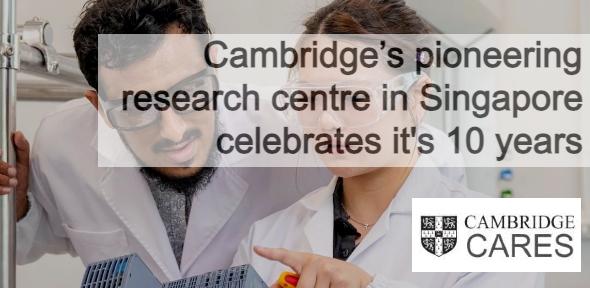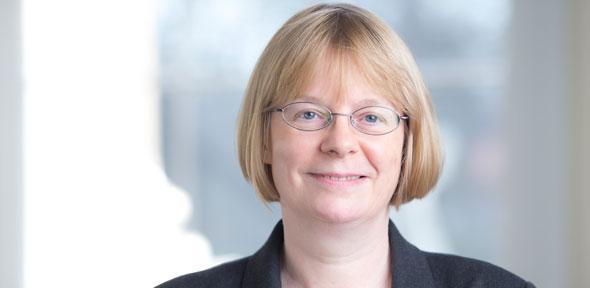
In 2013, Cambridge launched its first ever overseas research centre, the Cambridge Centre for Advanced Research and Education Singapore (CARES). Since then it has grown into a thriving community of 150 staff and researchers, working with partners to achieve scientific breakthroughs with a global impact.
In the heart of the vibrant city-state of Singapore, the University of Cambridge’s first overseas research platform, CARES is celebrating 10 years since its foundation. The occasion underscores a decade of scientific success, industrial application and international research collaboration between Singapore and the UK.
This research eventually expanded into use-cases for intelligent systems in areas such as decarbonisation, chemical modelling, lab automation, and smart cities. The decade-long programme of work has culminated in the development of the World Avatar dynamic knowledge graph – a universal digital twin capable of describing the behaviour of any complex system.
At around the same time, Gladden was approached by Singapore’s National Research Foundation to gauge Cambridge’s interest in joining the recently formed Campus for Research Excellence and Technological Enterprise or CREATE, a “co-laboratory” of top research institutions from around the world co-located in Singapore.
"When I started in the PVC role, I was interested in how Cambridge could show its strength across the University in areas of global importance. Were we making the most of our existing international collaborations and networks?"
"Singapore was particularly interested in decarbonising its large chemical industry. Cambridge had recently launched the Energy Strategic Research Initiative (which later became the Energy Interdisciplinary Research Centre). So, to come together to work on this important problem was immediately attractive." Professor Dame Lynn Gladden, Dept of Chemical Engineering and Biotechnology, University of Cambridge
However, there was some work to do before embarking on this adventurous new phase in the University’s 800 year development.
The case needed to be made for one of South East Asia’s most modern cities to become the first overseas footprint of one of the world’s most ancient universities. For Gladden, the arguments were compelling: “Firstly and very importantly, Singapore’s reputation for excellent research and the strong pre-existing relationships between Cambridge and Singapore researchers was a firm platform we could build on."
"Secondly, Singapore is a fascinating nexus between the Asian world and the West, making it a perfect place to look at science and technology challenges from our different national and regional perspectives.”
The case was made and CARES was launched in 2013.
New perspectives
Locating CARES in Singapore has given Cambridge researchers the opportunity to explore their fields in a new context, giving rise to a number of fresh insights. Singapore’s unique infrastructure and cultural context as the only Asian city-state also offer research possibilities found nowhere else in the world.
"There is a very important co-benefit to international collaborations in that they naturally cause you as a researcher to consider how the design and use of any technology derived from a scientific advance might vary in different regions of the world."
"It could be all too easy for us in Cambridge to see some of our grand challenges in net zero and healthcare through a UK or Western lens. The partnerships formed through CARES encourage us to continually consider new angles." Professor Anne Ferguson-Smith, Pro-Vice-Chancellor for Research and International Partnerships, University of Cambridge
Read the full University of Cambridge article
Cambridge Centre for Advanced Research and Education Singapore (CARES) press release


